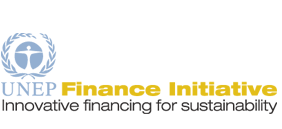Investment rose from from USD 30 billion in 2004 to USD 38 billion in 2005. A REN21 report estimates that at least 85 renewable energy companies or divisions have market valuations greater than USD 40 million, up from 60 companies or divisions in 2004. The estimated total market valuation of companies in this category is USD 50 billion, double the 2004 estimate, as several high-profile initial public offerings have recently taken place. The solar PV industry invested record amounts in new plant and equipment (about USD 6 billion), as did the biofuels industry (more than USD 1 billion).
In the last year there were many new policies adopted to support renewable energy, and several more were extended, revised, or discussed. Not only were the EU and US active, but more than 16 developing countries as well, including Brazil, China, Egypt, India, Mexico, Thailand, and Uganda.
A number of countries dramatically stepped up targets and mandates for biofuels – ethanol and biodiesel mixed with conventional fuels. The number of countries with “feed-in” policies for the purchase of power from renewable sources increased to 41, and the number of countries with future targets for the share of energy from renewables increased to at least 49.



 Posted by Rachael Bailey
Posted by Rachael Bailey 